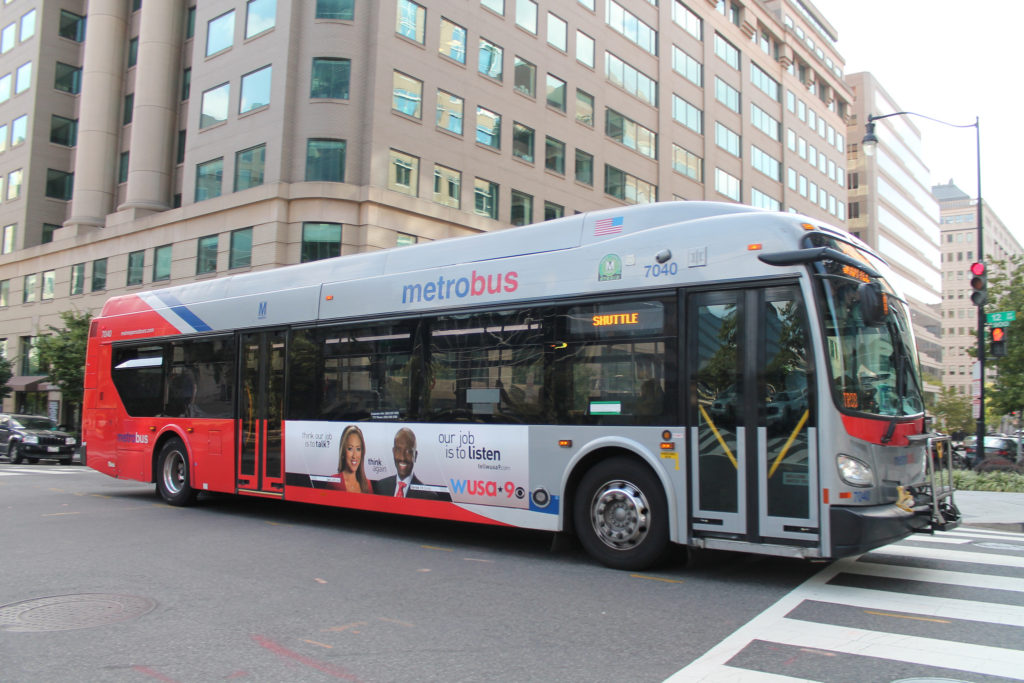The Washington Metropolitan Area Transit Authority (WMATA) has just announced that it is moving to bust up the transportation unions in the capital area as it is now outsourcing its new bus facility to a private company. Unsurprisingly, the move enraged Amalgamated Transit Union Local (ATU) 689, the union that treated to strike following a recent breakdown in contract negotiations.
In a report from the Washington Times, Metro awarded its $89 million contract to operate the new bus facility on Cinder Bed Road in Lorton, Virginia, to Transdev, a private company, after rejecting a bid from ATU 689. The transit union represents about 8,000 of Metro’s 12,000 employees, most of whom are bus or train workers.
Union representatives believed it was to spite them. “It’s to bust Local 689, there’s no question about that,” ATU International President Larry Hanley said. He explained that Metro had “no reason” to privatize the contract unless the transit agency wanted lower wages for the new employees.
The Metro board has been looking to reduce operating costs since early 2017. Echoing the measure, Metro spokesman Dan Stessel said, “[The contract] has been something we’ve been talking about for more than a year now.”
WMATA General Manager Paul Wiedefeld said the new contract with Transdev “is a step toward keeping Metro affordable for riders, while helping to meet the legal mandate to hold subsidy growth for operating trains and buses for taxpayers at 3 percent,” according to the report.
Issues with a decline in ridership as plagued Metro for years. Weekday ridership is down from 639,000 per week in May 2016, to 612,000 in May 2017, to just 598,000 per weekday this year in May. Currently, the weekly ridership is on the same track as it was in the early 2000s when Washington D.C. had 1.5 million less residents, showing that mismanagement, untimely service, and lapsed safety checks have cost them.
Recently, the system has attempted to recur funds by cutting personnel and charging more to ride on the transit network.
To reduce the financial sting, Metro has promised to cap operational costs in exchange for $500 million in dedicated annual funding from the tri-state governments. Nevertheless, the cost cutting is going even further with the system selling its downtown headquarters to save $130 million, and funding a $2.2 million study to find out how to improve its bus business model.
In a press release, the agency said the $89 million contract with Transdev could save Metro $15 million over the contract’s five-year life span.
“In no uncertain terms, the members of the Amalgamated Transit Union (ATU) Local 689 want Metro to be a safe, affordable and reliable transit system,” said local union spokesman David Stephen. “And we know that privatization won’t make that happen and we reach that conclusion based on the facts.”
Hanley went a step further saying that Transdev is a “bottom-feeder company whose only purpose is to make a profit from the agony of their workers.”
The Times reported that Transdev replied, explained that “Some 95 percent of our employees in the U.S. are represented by unions, and we have productive working relationships with the vast majority of our unions in over 200 cities and counties across the country.” Furthermore, the company is “looking forward” to expanding its work with Metro.
The move by Metro is one that has been coming for a long time. It is clear that the unions in the Washington area have been a part of the problem with safety protocols, disappointing service, and languishing repairs – with some part of the Metro track on fire in any given week.

